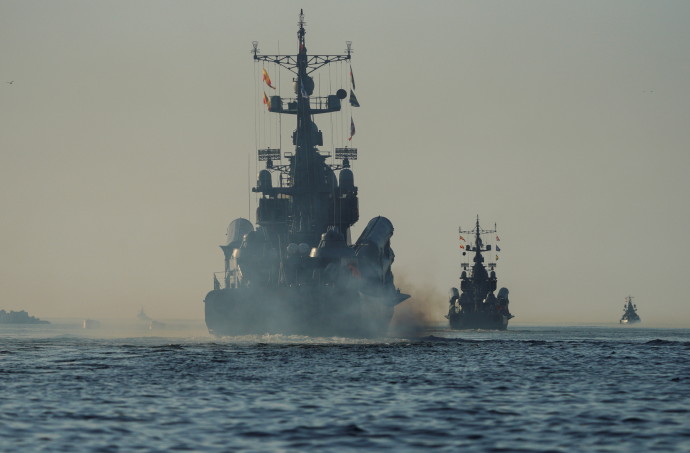Speaking at the Main Naval Parade in St. Petersburg on Sunday, Russian President Vladimir Putin announced the signing of a decree approving the new Russian naval doctrine.
The new naval doctrine defines the main threats to Russia's national security and openly outlines the country's borders, including in the Arctic and the Black Sea. Putin stressed that "their protection will be firmly ensured by all means."
"Their protection will be firmly ensured by all means."
Vladimir Putin
The new doctrine assumes "diversification and intensification of maritime activities in the Svalbard archipelago, Franz Josef island, Novaya Zemlya and Wrangel Island."
It also notes "an increase in the combat potential and development of the basing system of the Northern Fleet, the forces and means of the Federal Security Service, the forces and means of the National Guard."
The doctrine claims that the national interests of the Russian Federation, as a "great maritime power," extend to the entire Worlds Oceans.

Putin pointed out that the key here is the capabilities of the Navy. "The Navy can respond with lightning speed to anyone who decides to encroach on our sovereignty and freedom, successfully fulfills strategic tasks with honor on the borders of our country and in any area of the world's oceans, has a high readiness for active operations in his coastal, surface, air, submarine forces and funds, they are constantly being improved."
These threats include the advancement of NATO's military infrastructure to the borders of Russia and the activation of the alliance's exercises in the waters of the seas adjacent to the territory of Russia, according to the document.
Layers of national interest
The areas that ensure the national interests of the Russian Federation in the World's Oceans are divided in the new document according to their importance into vital, important and others.
Thus, the first group included zones that "are directly related to the development of the state, the protection of its sovereignty, territorial integrity and strengthening of defense, and critically affect the socio-economic development of the country."
These include internal sea waters and the territorial sea of the Russian Federation, the exclusive economic zone of the country and its continental shelf, the Arctic Basin, including the water area of the Northern Sea Route, the water area of the Sea of Okhotsk and the Russian sector of the Caspian Sea.
Important areas are those that "significantly affect the economic development, material well-being of the population and the state of the national security of the Russian Federation, as well as the maintenance of the strategic and regional security of the state."
These are the waters adjacent to the coast of the Russian Federation, including the Sea of Azov and the Black Sea, the eastern part of the Mediterranean Sea, the Black Sea, the Baltic and Kuril straits, and areas of the passage of world transport communications.
"The Russian Federation, to protect its national interests in the Worlds Oceans, is exercising its indisputable right to the presence of forces (troops) of the Navy and their use in strict accordance with the legislation of the Russian Federation, its international treaties and the norms of international law," the doctrine summarizes.
